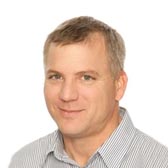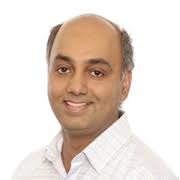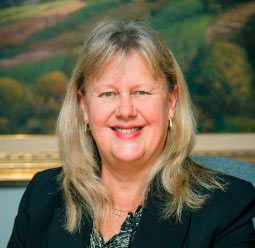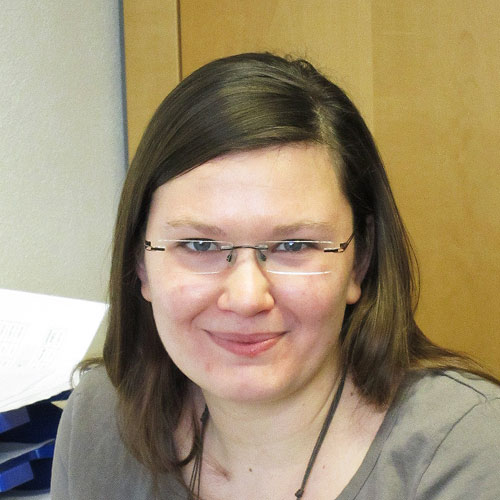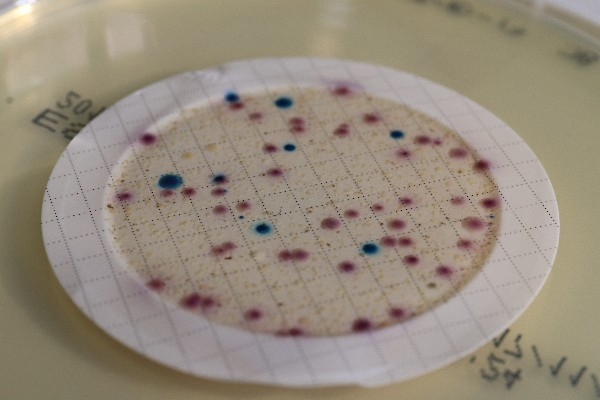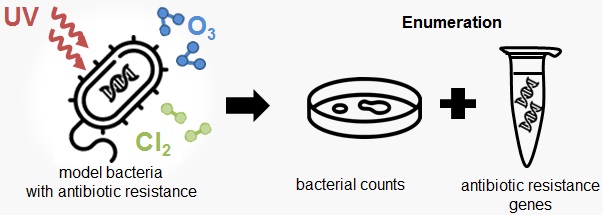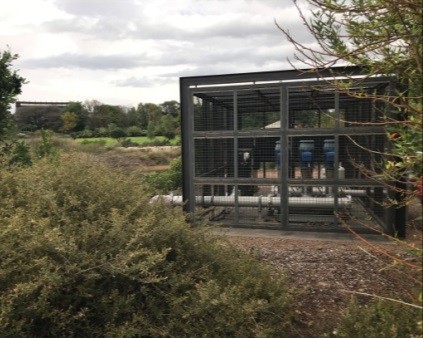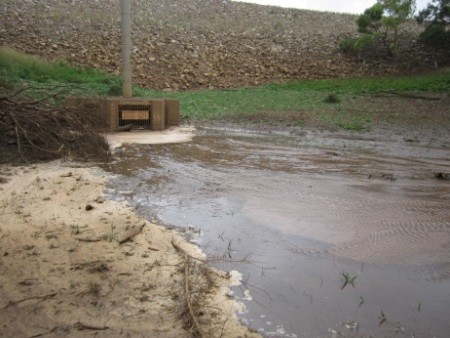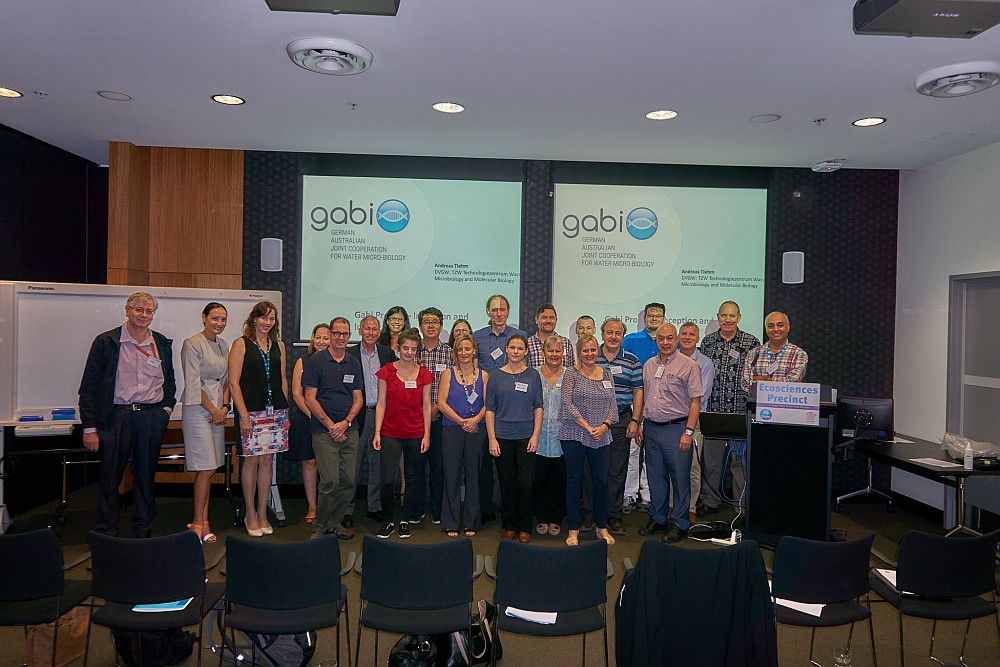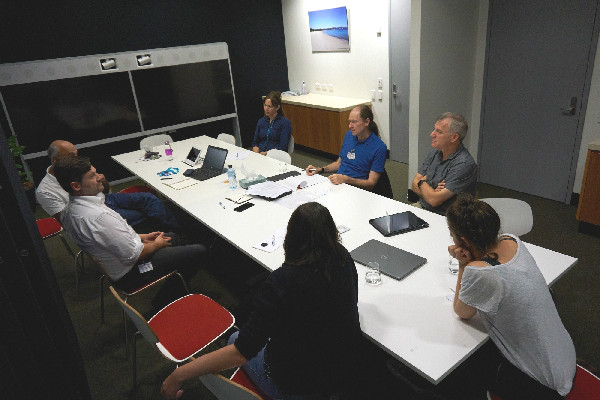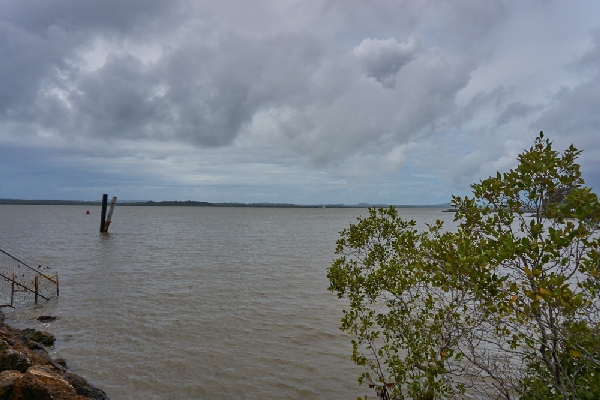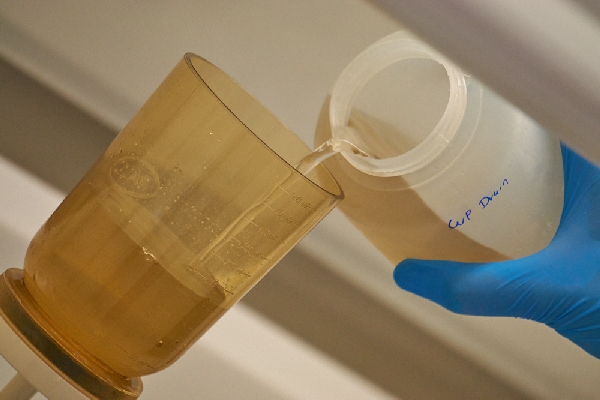Publications
Sidhu J.P.S., Gupta V.V.S.R., Stange C., Ho J., Harris N., Barry K., Gonzalez D., Van Nostrand J.D., Zhou J., Page D., Tiehm A., Toze S.:
Prevalence of antibiotic resistance and virulence genes in the biofilms form an aquifer recharged with stormwater,
Water Research 185:116269. doi: 10.1016/j.watres.2020.116269 (2020 )
Stange C., Sidhu J.P.S., Toze S., Tiehm A.:
Comparative removal of antibiotic resistance genes during chlorination, ozonation, and UV treatment.
International journal of hygiene and environmental health 222, 3: 541–548 (2019). DOI: 10.1016/j.ijheh.2019.02.002
Sidhu J., Ho J., Stange C., Smith K., Ning D., Wu L., Zhou J.:
Microbial community structure and diversity of activated sludge in wastewater treatment plants located in different climate zones of Australia.
In: 20th Symposium on Health-Related Water Microbiology (HRWM), Wien, Österreich, 15.-20. September 2019. ISBN 978-3-9503828-3-9, Book of abstracts: 92 (2019)
Stange C., Sidhu J., Roiko A., Page D., Ho J., Toze S., Tiehm A.:
German-Australian Cooperation for Water Microbiology.
In: 20th Symposium on Health-Related Water Microbiology (HRWM), Wien, Österreich, 15.-20. September 2019. ISBN 978-3-9503828-3-9, Book of abstracts: 124 (2019)
Tiehm A., Stange C., Sidhu J., Toze S.:
Removal of antibiotic resistance bacteria (ARB) and antibiotic resistance genes (ARGs) during drinking water treatment.
In: 20th Symposium on Health-Related Water Microbiology (HRWM), Wien, Österreich, 15.-20. September 2019. ISBN 978-3-9503828-3-9, Book of abstracts: 191 (2019)
Ho J., Sidhu J., Toze S., Tiehm A.:
Molecular biological live/dead differentiation in water treatment
In: Annual Conference of the Association for General and Applied Microbiology (VAAM), Wolfsburg 15.-18. April 2018, Book of abstracts: EMP156, 142 (2018)
Stange C., Sidhu J., Ho J., Toze S., Tiehm A.:
German-Australian Cooperation for Water Microbiology.
In: Annual Conference of the Association for General and Applied Microbiology (VAAM), Wolfsburg 15.-18. April 2018, Book of abstracts: EMP166, 146 (2018)
Stange C., Sidhu J., Toze S., Ho J., Tiehm A.:
German-Australian Joint Lab on Health-Related Water Microbiology.
In: One Health & Food Safety Congress, Bonn 18.-19. September 2018, Proceedings, 111 (2018)
Stange C., Sidhu J., Toze S., Ho J., Tiehm A.:
Occurrence of Antibiotic Resistant Bacteria and Resistance Genes in Surface and Ground Water.
In: Annual Conference of the Association for General and Applied Microbiology (VAAM), Wolfsburg 15.-18. April 2018, Book of Abstracts: EMP167, 146 (2018)
Stange C.,Sidhu J.P.S.,Tiehm A.,Toze S.:
Antibiotic resistance and virulence genes in coliform water isolates.
International Journal of Hygiene and Environmental Health 219: 823-831 (2016). 10.1016/j.ijheh.2016.07.015
Schmidt N., Page D., Tiehm A.:
Biodegradation of pharmaceuticals and endocrine disruptors with oxygen, nitrate, menganes(IV), iron(III) and sulfate as electron acceptors.
Journal of Contaminant Hydrology: 203: 62-69 (2017)
Otto J., Sidhu J., Toze S., Tiehm A:
Comparing methods for virus and bacteria concentration from different water sources.
In: 17th International Symposium on Health Related Water Microbiology, IWA WaterMicro 2013, Florianopolis, Brazil, 15-20 September 2013, Proceedings: 2 pages (2013)
Tiehm A., Sidhu J., Toze S., Stoll C.:
Antibiotic resistance genes and virulence genes in surface water samples from Germany and Australia.
In: 17th International Symposium on Health Related Water Microbiology, IWA WaterMicro 2013, Florianopolis, Brazil, 15-20 September 2013, Proceedings: 3 pages (2013)
Stoll C., Sidhu J.P.S., Tiehm A., Toze S.:
Prevalence of clinically relevant antibiotic resistance genes in surface water samples collected from Germany and Australia.
Environmental Science & Technology 46: 9716-9726 (2012)



